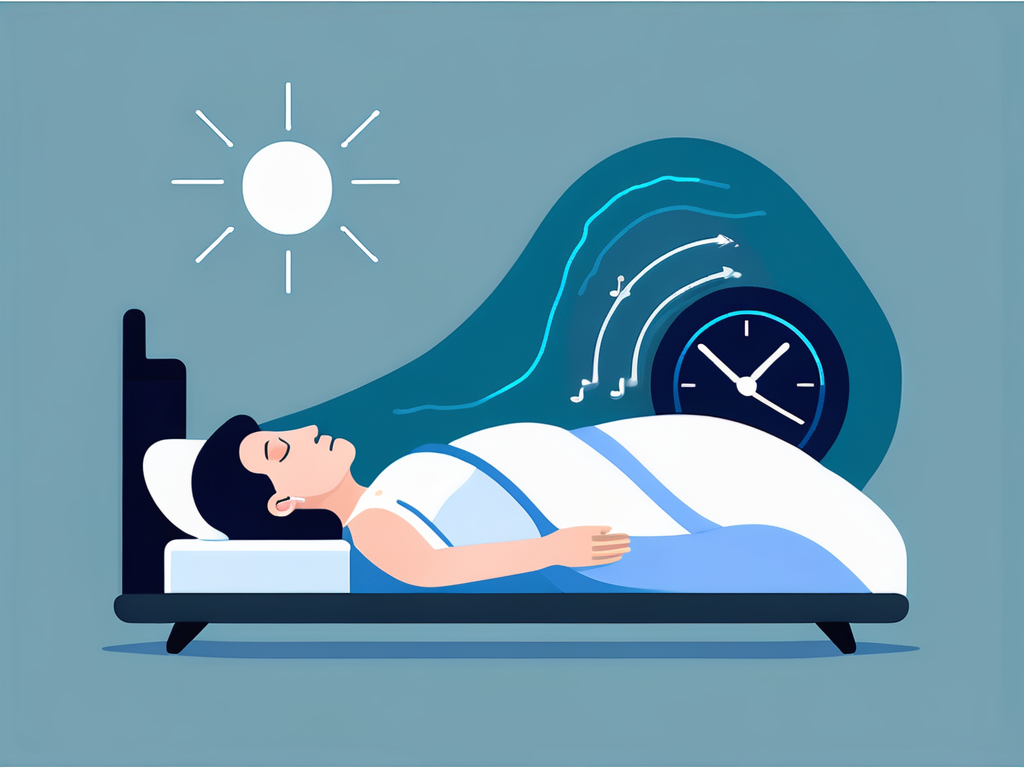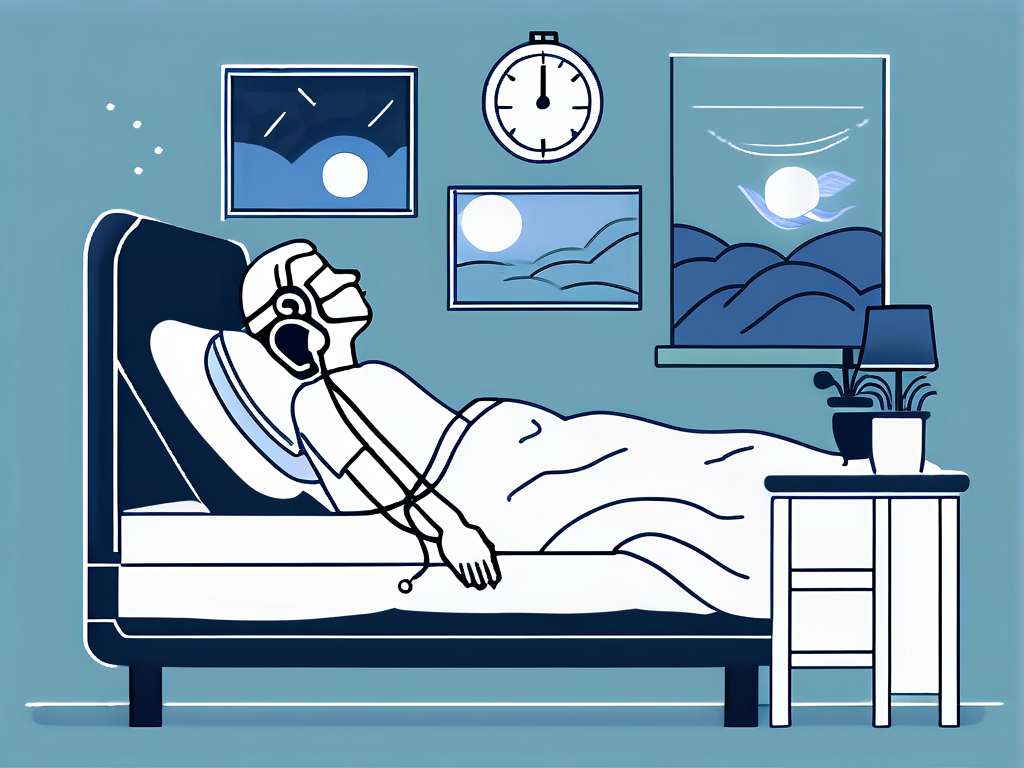In the realm of sleep disorders, one condition that affects a significant number of individuals worldwide is obstructive sleep apnea (OSA). This disorder, characterized by disruptions in breathing during sleep, can lead to various health complications if left untreated. Fortunately, there are several treatment options available, including the use of mouth guards. In this article, we will explore how mouth guards can be an effective tool in managing and treating OSA.
Understanding Obstructive Sleep Apnea
Before delving into the specifics of mouth guards, it is crucial to comprehend the nature of OSA. This condition occurs when the airway becomes partially or completely blocked during sleep, disrupting the natural breathing process. As a result, individuals with OSA experience pauses in breathing, often accompanied by loud snoring and gasping for air. The severity of the condition can vary, with some individuals experiencing only a few episodes per night, while others may have numerous interruptions.

It's important to note that untreated obstructive sleep apnea can have far-reaching effects beyond just disrupted sleep. The repeated pauses in breathing can lead to decreased oxygen levels in the blood, putting a strain on the heart and other vital organs. Over time, this can contribute to the development of cardiovascular problems and other serious health issues. That's why early detection and intervention are key in managing this condition effectively.
Symptoms and Risks of Obstructive Sleep Apnea
The symptoms of OSA are diverse and can significantly impact a person's quality of life. Common signs include excessive daytime drowsiness, morning headaches, irritability, and difficulty concentrating. If left untreated, OSA can lead to serious health risks, such as high blood pressure, heart disease, and stroke. Therefore, it is essential to diagnose and manage this condition effectively.
Moreover, the impact of obstructive sleep apnea extends beyond physical health. The chronic sleep deprivation caused by OSA can also take a toll on mental well-being, leading to mood disturbances, depression, and impaired cognitive function. This highlights the importance of addressing not just the physical symptoms of OSA, but also the broader impact it can have on overall wellness.
Causes and Diagnosis of Obstructive Sleep Apnea
The causes of OSA can vary, but the most common factor is the relaxation of the muscles at the back of the throat, leading to the collapse of the airway. Other risk factors include obesity, smoking, alcohol consumption, and certain anatomical abnormalities. To diagnose OSA, medical professionals may use a combination of methods, including sleep studies and evaluating symptoms and medical history.
Furthermore, it's essential to recognize that obstructive sleep apnea is a complex condition that often requires a multidisciplinary approach to treatment. In addition to traditional interventions like continuous positive airway pressure (CPAP) therapy and oral appliances, lifestyle modifications such as weight loss, regular exercise, and smoking cessation can also play a crucial role in managing OSA. By addressing the condition from various angles, healthcare providers can tailor treatment plans to individual needs and improve outcomes for patients with obstructive sleep apnea.
The Role of Mouth Guards in Sleep Apnea Treatment
One effective option for managing OSA is the use of mouth guards, also known as oral appliances or mandibular advancement devices. These custom-fit devices are worn in the mouth during sleep and work by repositioning and stabilizing the jaw to prevent airway blockages. By keeping the airway open, mouth guards can significantly reduce symptoms and improve sleep quality for individuals with mild to moderate OSA.

Individuals who suffer from obstructive sleep apnea (OSA) often experience interruptions in their breathing during sleep, leading to poor sleep quality and potential health risks. Mouth guards play a crucial role in addressing this issue by promoting better airflow and reducing the frequency of breathing pauses, ultimately improving the overall quality of sleep.
How Mouth Guards Work
Mouth guards work by gently advancing the lower jaw forward, which helps to increase the size of the airway and reduce obstructions. Additionally, they help to prevent the tongue from blocking the throat, further improving breathing during sleep. The design of mouth guards is typically adjustable, allowing for personalized comfort and effectiveness.
Moreover, mouth guards are designed to be comfortable to wear throughout the night, ensuring that individuals can sleep without disruptions. The materials used in mouth guards are often soft and flexible, minimizing any discomfort or irritation in the mouth while still effectively maintaining the jaw in the desired position for optimal airway support.
Benefits of Using Mouth Guards for Sleep Apnea
Using mouth guards for sleep apnea treatment offers several advantages. Firstly, they are non-invasive and easy to use, making them a convenient option for individuals who prefer to avoid surgery or continuous positive airway pressure (CPAP) machines. Secondly, mouth guards are portable, allowing individuals to maintain their treatment regimen even when traveling. Lastly, compared to other treatment options, mouth guards are relatively cost-effective.
Furthermore, the use of mouth guards can have positive effects beyond improving sleep quality. By ensuring proper airflow during sleep, mouth guards can help reduce daytime fatigue, enhance cognitive function, and lower the risk of associated health conditions such as hypertension and cardiovascular disease. This comprehensive approach to managing OSA highlights the multifaceted benefits of incorporating mouth guards into a treatment plan.
Choosing the Right Mouth Guard
When considering mouth guards for OSA treatment, it is crucial to select the most suitable option for individual needs. Several factors should be taken into account to ensure optimal effectiveness and comfort.
It's important to note that OSA, or obstructive sleep apnea, is a serious sleep disorder that can have detrimental effects on one's overall health and well-being. Mouth guards are just one of the many treatment options available for managing OSA symptoms. It's essential to work closely with a healthcare provider to determine the most appropriate course of action based on the severity of the condition and individual circumstances.
Factors to Consider When Selecting a Mouth Guard
One important factor is the severity of OSA. While mouth guards are typically effective for mild to moderate cases, severe OSA may require alternative treatment methods. Additionally, the presence of certain dental conditions, such as temporomandibular joint (TMJ) disorder or significant tooth damage, may influence the choice of mouth guard. Consulting with a dentist or sleep specialist is crucial to determine the most appropriate solution.
Furthermore, lifestyle factors such as smoking, alcohol consumption, and obesity can also play a role in the effectiveness of mouth guards for OSA treatment. Addressing these underlying issues in conjunction with using a mouth guard can lead to improved outcomes and better overall sleep quality.
Custom-Fitted vs. Over-the-Counter Mouth Guards
When it comes to mouth guards, there are two primary options: custom-fitted and over-the-counter (OTC) variants. Custom-fitted mouth guards are designed specifically for each individual, offering a precise fit and effective results. These devices, typically obtained through dentists or specialized laboratories, provide superior comfort and can be adjusted as needed. On the other hand, OTC mouth guards are readily available in retail stores and provide a more affordable alternative. While they may not provide the same level of customization, they can still offer some benefits for individuals with mild symptoms or budget constraints.
It's worth noting that proper care and maintenance of mouth guards are essential for ensuring their longevity and effectiveness. Regular cleaning, storage in a protective case, and periodic evaluation by a healthcare provider can help prolong the lifespan of the mouth guard and optimize its performance in managing OSA symptoms.
Caring for Your Mouth Guard
Proper care and maintenance of mouth guards are essential for their longevity and effectiveness in OSA treatment.
Cleaning and Maintenance Tips
To ensure hygiene and durability, it is recommended to clean the mouth guard daily using mild soap and warm water. Avoid using toothpaste or other abrasive substances that may damage the device. Additionally, store the mouth guard in a clean, dry case when not in use. Regularly inspect the mouth guard for any signs of wear or damage and consult a dental professional for repairs or replacements.
When to Replace Your Mouth Guard
Over time, mouth guards may show signs of wear or become less effective. It is important to monitor the condition of the device and replace it when necessary. Signs that indicate the need for replacement include cracks, thinning material, or a poor fit. Consulting with a dentist or sleep specialist can help determine when a replacement is warranted.
Other Treatment Options for Obstructive Sleep Apnea
In addition to mouth guards, there are various other treatment options available for OSA, ranging from lifestyle changes to medical interventions.

Lifestyle Changes and Home Remedies
For individuals with mild OSA, certain lifestyle modifications may alleviate symptoms. These may include weight loss, regular exercise, avoidance of alcohol and sedatives, smoking cessation, and sleep position adjustments. Additionally, using nasal dilators or saline sprays may help improve breathing during sleep.
Medical Treatments and Surgeries
Individuals with severe OSA or those who do not respond well to conservative treatment options may require medical interventions. Continuous positive airway pressure (CPAP) machines, which deliver a constant flow of air through a mask, are commonly used to keep the airway open. Other options include surgical procedures to remove obstructions or reshape the airway, such as uvulopalatopharyngoplasty (UPPP) or mandibular advancement surgery.
In conclusion, treating obstructive sleep apnea with mouth guards can be an effective and non-invasive solution. By understanding the nature of this sleep disorder and considering the various treatment options available, individuals can take proactive steps towards managing their symptoms and improving their overall well-being. Consultation with a dental professional or sleep specialist is crucial in determining the most suitable course of treatment. With proper care and consistent use, mouth guards can significantly contribute to a restful and uninterrupted night's sleep for those with OSA.













